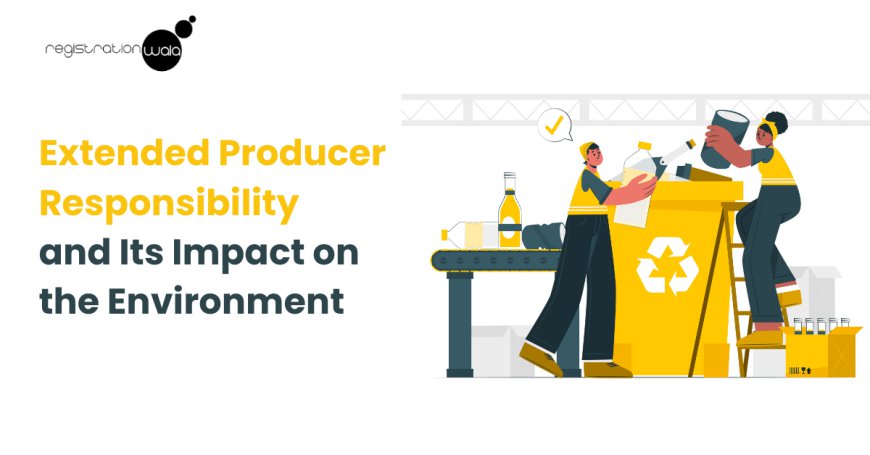Extended Producer Responsibility and Its Impact on the Environment
Extended Producer Responsibility (EPR) is a significant concept aimed at addressing the environmental impacts caused by various products, particularly plastics and electronic waste. As awareness of sustainability grows, businesses are increasingly held accountable for the entire lifecycle of their products, from design to disposal. This article delves into the concept of EPR and explores its far-reaching impact on the environment.

Extended Producer Responsibility (EPR) is a significant concept aimed at addressing the environmental impacts caused by various products, particularly plastics and electronic waste. As awareness of sustainability grows, businesses are increasingly held accountable for the entire lifecycle of their products, from design to disposal. This article delves into the concept of EPR and explores its far-reaching impact on the environment.
What is Extended Producer Responsibility?
Understanding the Basics of EPR
Extended Producer Responsibility (EPR) is a policy approach where producers are responsible for the collection, recycling, and disposal of their products once they reach the end of their life cycle. The goal is to shift the burden of waste management from governments and municipalities to the companies that manufacture and sell these goods.
Key Features of EPR
-
Product Design: EPR encourages manufacturers to design products that are easier to recycle and dispose of sustainably.
-
Waste Management: Companies must create or participate in systems that ensure proper disposal and recycling.
-
Cost Allocation: Instead of public funds being used for waste management, producers bear the financial responsibility.
The Environmental Impact of EPR
Reducing Waste and Pollution
One of the primary benefits of EPR is the reduction in waste and pollution. By mandating that companies take responsibility for the disposal of their products, less waste ends up in landfills or oceans. For example, EPR policies targeting plastic packaging have led to increased recycling rates and less plastic pollution.
Encouraging Recycling and Reuse
With EPR programs in place, there is a growing emphasis on recycling and reusing materials. Products that were once destined for disposal can now be repurposed or recycled, reducing the consumption of raw materials and energy.
Incentivizing Sustainable Production
EPR encourages businesses to innovate and adopt more sustainable practices. This could mean using eco-friendly materials, designing products that last longer, or creating systems for returning used products. These changes help reduce the environmental footprint of businesses.
The Role of the EPR Certificate in Compliance
What is an EPR Certificate?
An EPR Certificate is an official document that certifies a company’s compliance with EPR regulations. It demonstrates that the producer is managing its products responsibly by taking part in a certified waste management program. Many industries, especially electronics and plastic packaging, now require this certification to ensure they meet regulatory standards.
How the EPR Certificate Impacts Business Practices
The EPR Certificate not only ensures compliance with legal regulations but also enhances a company's reputation for sustainability. In the eyes of consumers, a certified company is seen as responsible and environmentally conscious, which can boost brand loyalty and market competitiveness.
Challenges in Implementing EPR
High Costs for Businesses
One of the main challenges in implementing EPR policies is the cost. Producers are required to invest in recycling and disposal systems, which can be expensive. However, these costs are often offset by the environmental benefits and long-term savings from reduced waste management expenses.
Inconsistent Global Regulations
Another challenge is the lack of consistent global regulations. EPR policies vary significantly from country to country, making it difficult for multinational companies to implement uniform strategies across different markets.
Conclusion
Extended Producer Responsibility is a crucial tool in the fight against environmental degradation. By placing the responsibility of waste management on producers, EPR has the potential to reduce waste, encourage recycling, and promote sustainable production practices. With the added support of the EPR Certificate, businesses are held accountable for their environmental impact, creating a more sustainable future for all.
Must Read: How to Start an Organic Vegetable Garden
